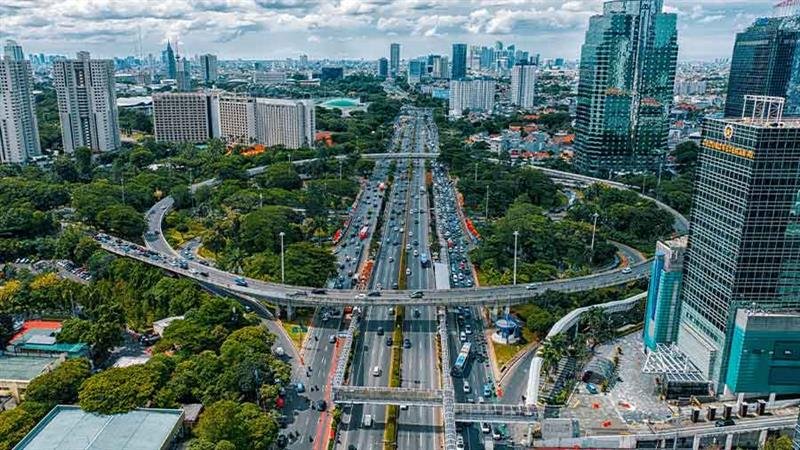On June 30, 2025, Indonesia announced a major deregulation initiative to ease import restrictions on 10 strategic commodity groups. The policy, introduced by Coordinating Minister for Economic Affairs Airlangga Hartarto and formalized under Trade Ministry Regulation No. 16 of 2025, is scheduled to take effect by the end of August 2025. This move is designed to attract foreign investment, cut red tape, and align with global trade dynamics, particularly ahead of the July 9 U.S. tariff review deadline.
The 10 commodity groups affected include:
- Forestry products
- Subsidized fertilizers
- Plastic raw materials
- Alternative fuels
- Food trays
- Certain chemicals
- Pearls
- Two- and three-wheeled bicycles
- Synthetic sweeteners (saccharin and cyclamate)
- Footwear
These items were selected for their strategic role in supporting domestic supply chains and industrial productivity.
Regulatory reform to strengthen market access
The new regulation removes several non-tariff barriers and simplifies import requirements for these selected commodities. Instead of overlapping ministry approvals, importers will primarily deal with streamlined documentation and limited third-party verification, accelerating entry timelines and reducing compliance burdens.
Environmental oversight remains in place for sensitive sectors. For instance, while forestry products no longer require an import approval (PI) from the Ministry of Environment and Forestry, importers must still comply with legal traceability standards through self-declared documentation.
Real-world business implications for foreign suppliers
This reform presents immediate opportunities for international businesses. A foreign chemical supplier serving Southeast Asian manufacturers can now redirect shipments through Indonesia with fewer administrative hurdles. Similarly, a bicycle brand seeking to meet growing urban mobility demand in cities like Jakarta can import components more efficiently and at a lower cost.
Importers of food packaging materials and sweeteners, such as saccharin and cyclamate, can now benefit from reduced customs procedures, especially those supplying Indonesia’s growing food processing and F&B sectors. These sectors have seen double-digit growth in recent years, making them a target for SME suppliers in ASEAN and beyond.
These regulatory efficiencies strengthen Indonesia’s appeal as a cost-efficient import destination for companies looking to scale operations quickly.
Strategic timing amid global trade realignments
The deregulation also sends a clear signal to Indonesia’s trade partners. By easing access to vital imports, the government demonstrates its commitment to facilitating investment and maintaining stable supply chains in a shifting global environment. The timing — just days before the U.S. reviews its tariff exemptions — positions Indonesia as a responsive, reform-oriented partner in the region.
At the domestic level, this reform directly addresses long-standing complaints from business groups about overlapping regulations, licensing delays, and excessive red tape. A simpler framework enhances predictability for businesses and signals a broader policy commitment to competitiveness.
Balanced approach to deregulation
While the regulation liberalizes access to many key inputs, it deliberately excludes certain sectors. The textile and apparel industry remains under tighter import controls to shield local manufacturers from low-cost competition.
The decision to exclude textiles reflects Indonesia’s cautious stance toward sectors with high employment sensitivity. The domestic textile industry has previously experienced pressure from low-cost imports, and the government remains focused on nurturing competitiveness through upstream investment rather than direct exposure to global price competition.
By retaining essential compliance tools, such as customs verification and traceability declarations, the regulation aims to strike a balance between openness and enforcement. It is not full deregulation, but rather a recalibration that favors trade efficiency without compromising oversight.
Investment implications for foreign businesses
Building on the earlier reforms, foreign suppliers can now access the Indonesian market with fewer regulatory bottlenecks and clearer entry channels. Indonesia’s position as a regional manufacturing base and growing consumer market strengthens its role as a hub for production and distribution.
Support industries such as logistics, warehousing, and customs brokerage also stand to benefit as import volumes increase and processing becomes faster and less costly.
Act now to capture early-mover advantage
Indonesia’s easing of import restrictions across these 10 strategic commodities is a clear step toward building a more open and investor-friendly trade environment. Businesses that act before the August 2025 rollout can be better positioned to secure competitive pricing, partner relationships, and market share. With neighboring economies like Vietnam and Malaysia also streamlining import frameworks, early action in Indonesia can help secure first-mover advantages in Southeast Asia’s evolving supply chain landscape.
In the weeks leading up to implementation, investors should begin reviewing their product classifications and liaising with local import agents or legal counsel to ensure they fall under the deregulated commodity codes. Additional technical guidance may be issued in the form of customs circulars or ministerial decrees clarifying documentation and surveyor verification procedures.
About Us
ASEAN Briefing is one of five regional publications under the Asia Briefing brand. It is supported by Dezan Shira & Associates, a pan-Asia, multi-disciplinary professional services firm that assists foreign investors throughout Asia, including through offices in Jakarta, Indonesia; Singapore; Hanoi, Ho Chi Minh City, and Da Nang in Vietnam; besides our practices in China, Hong Kong SAR, India, Italy, Germany, and USA. We also have partner firms in Malaysia, Bangladesh, the Philippines, Thailand, and Australia.
Please contact us at asean@dezshira.com or visit our website at www.dezshira.com and for a complimentary subscription to ASEAN Briefing’s content products, please click here.


